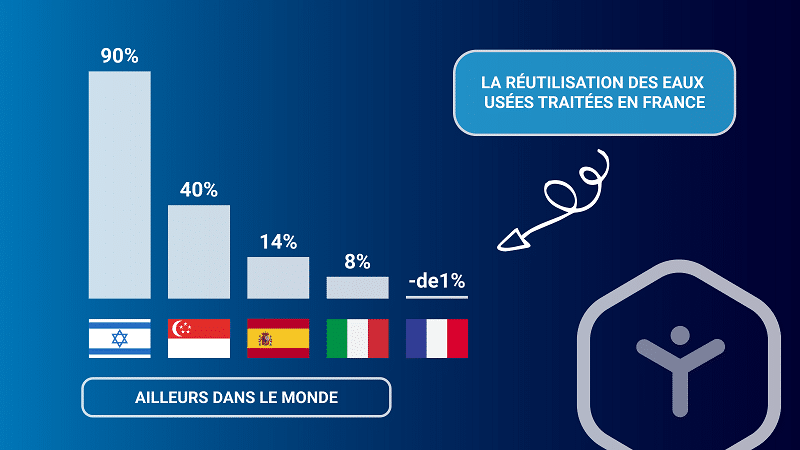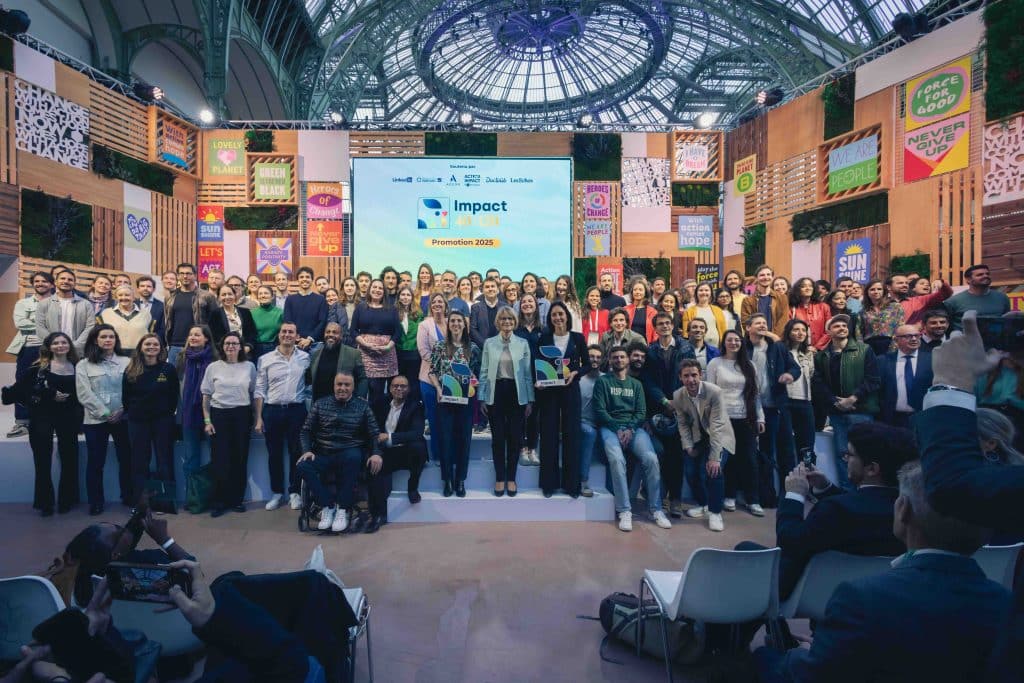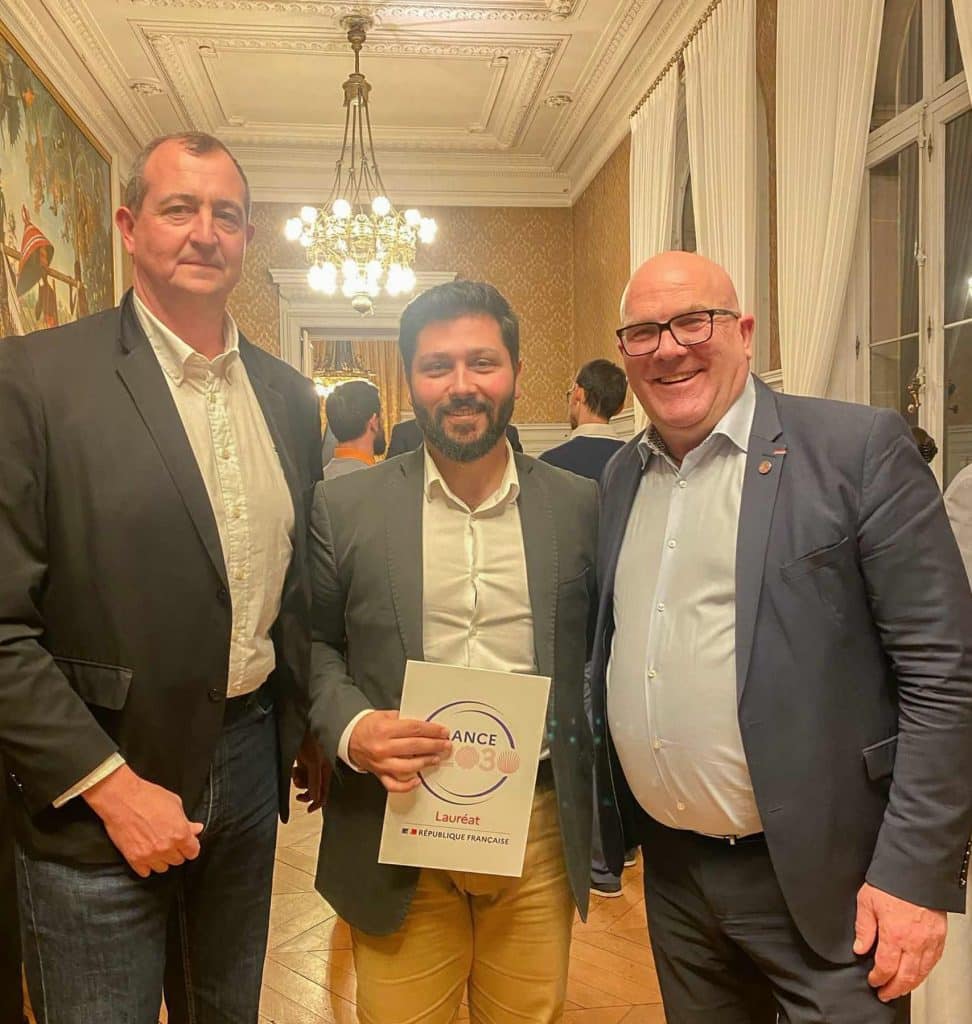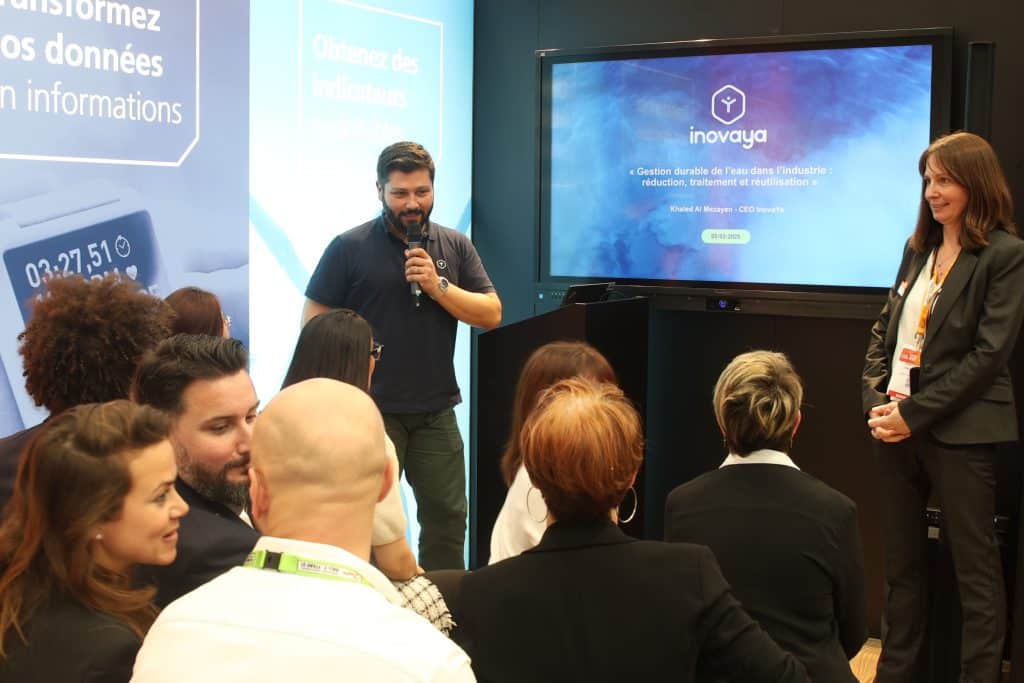
World Water Day: rethinking wastewater treatment for a more sustainable future

On March 22, we celebrate World Water Dayestablished by the United Nations in 1992. It's an opportunity to reflect on one of the most under-exploited levers in France: wastewater treatment and reuse. Each year, this event highlights a key issue surrounding freshwater. In 2024, the context of water stress, repeated droughts and increasing scarcity of resources makes this day all the more crucial.
Water, a precious resource that's still being wasted
While water is essential to our lives, it's also extremely vulnerable. Agriculture, industry, domestic consumption... our uses are manifold, but our capacity to recycle this resource remains limited.
👉 In France, less than 1% of treated wastewater is reused. We are far behind Italy and Spain, which reuse between 8% and 14%, and very far behind Singapore (40%) or Israel (90%).
These discrepancies underline a structural delay in the way we conceive wastewater treatment. Yet, in the face of increasing droughts and the degradation of water tables, the reuse of treated wastewater (REUT) should no longer be an option.
Why treat wastewater?
The treatment of wastewater (grey and black) remains restrictive, restrictive and, above all, up to the individual. To date, there is no obligation to do so. Average instruction times do not allow us to respond effectively to the urgency of the situation. For example, it takes an average of 1 year to obtain authorization to reuse treated water for watering green spaces.
Wastewater treatment represents a major lever for better resource management. When properly treated, wastewater can be reused for a wide range of purposes: watering green spaces, road cleaning, agricultural irrigation and even supplying industrial circuits.
Today, wastewater treatment relies mainly on voluntary initiatives by local authorities, businesses and private individuals.
This week, Prime Minister Elisabeth Borne is due to announce the government's water plan*, comprising some fifty new measures designed to achieve water savings of 10% by 2030, and 30% by 2050.
We look forward to this announcement!
*PS: After the publication of this article, the Government published its action plan for resilient and concerted water management.


